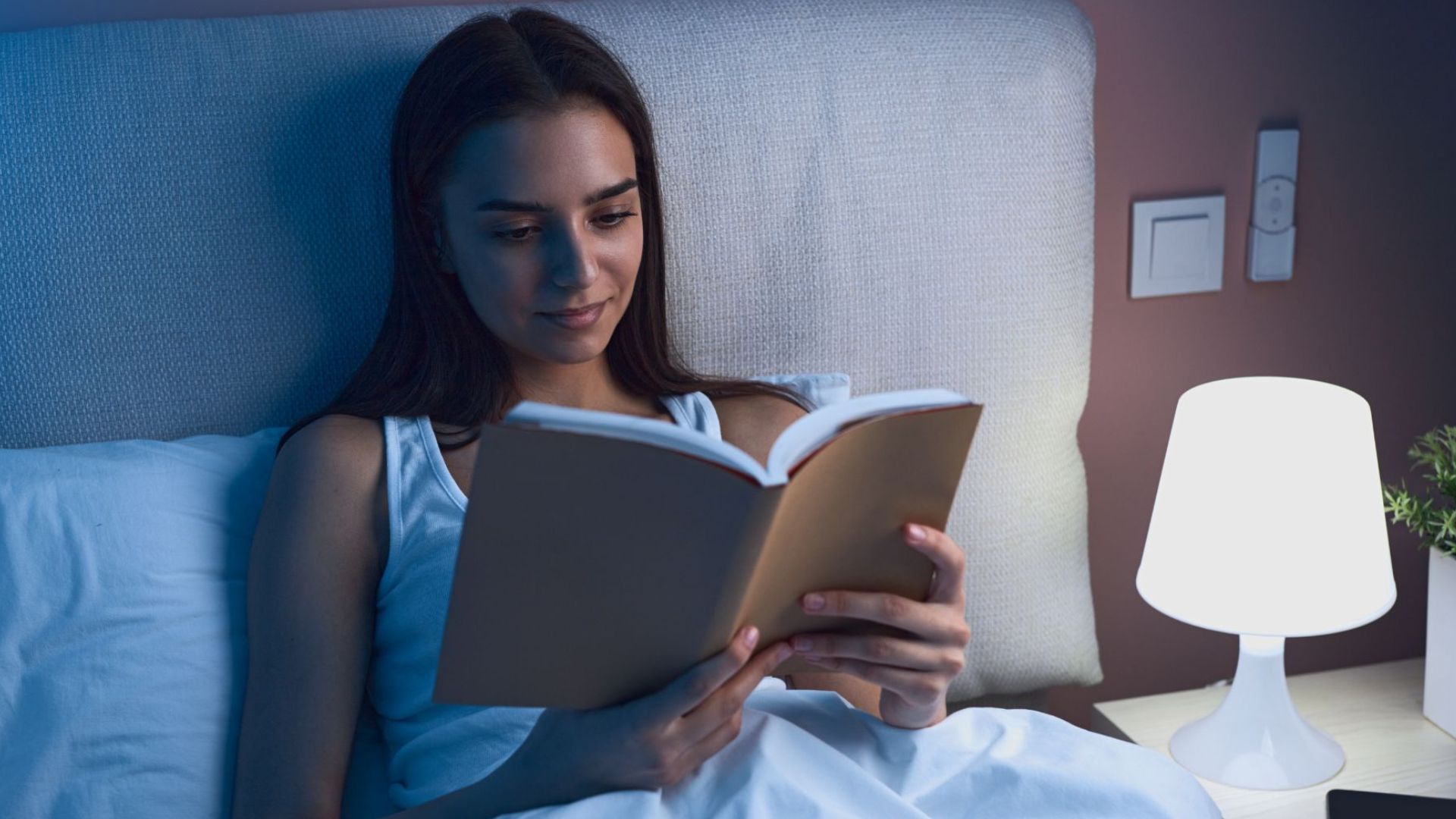Blog
5 simple sleep hacks to give you more energy and focus the next day

Struggling through the day after a poor sleep; fighting fatigue and spending an inordinate amount of time on an email because you can’t concentrate? If that feels familiar, it’s likely because you haven’t had the good rest you need to wake up energized and focused.
As we’ll discuss in more detail here, sleep is an essential restorative process we go through each night, and two of the key areas it helps us with are our energy levels and being alert and able to tackle tasks the following day. And while having a one of the best mattresses for your sleep style can improve the quality if your slumber, there’s much more you can do to ensure you get all the rest you need. (Which isn’t to say you shouldn’t check out the Labor Day mattress sales to see if you can upgrade your bed at a bargain price.)
To help you get the best sleep, and to wake up as bright-eyed and bushy-tailed as you deserve to be, we’re explaining a bit more about exactly why sleep is so important for these two areas in particular, and sharing five simple sleep hacks you can try to help you get a great sleep from tonight.
How does sleep help us with energy and focus?
In some ways, we just know that sleep restores our energy because, generally speaking, we go to bed tired and wake up feeling ready to tackle the day again. But how exactly does it happen?
Deep sleep (or slow wave sleep) plays particular plays a role in this. “Deep sleep is the primary stage where your body repairs and renews itself, leading to a significant restoration of energy,” Dr William Lu, Medical Director of Dreem Health previously explained to us. And, Harvard Health explains, it’s also the stage of sleep where our ability to make our body’s energy molecule, ATP, is enhanced.
Plus, overall, “Sleep serves an important function in energy balance by reducing daily energy demands and conserving energy stores,” researchers say.
So, why exactly do you feel more mentally alert and able to concentrate on tasks the morning after you’ve rested?
“Sleep affects how we think, solve problems, and regulate emotions. A well-rested brain has stronger executive function — the set of mental skills we use for planning, decision-making, and goal setting,” neuroscientist and founder of Manifest Wellness, Dr. Jamey Maniscalco previously told us.
Deep sleep plays a role here too; helping with learning and memory storage. It’s also worth noting that your glymphatic system (which is essentially your brain’s waste management system) flushes out waste products from the brain during deep sleep.
REM sleep, meanwhile, isn’t just when we dream. Among the functions of this fourth sleep stage are that it improves our memory and ability to problem solve, helps regulate our moods and helps with the processing and consolidation of emotional memories.
“Not getting enough REM sleep makes remembering things, solving problems, and regulating emotions harder (Walker, 2009). Ever noticed how everything feels harder to process after a bad night’s sleep? That’s your brain struggling without enough REM,” UKCP-registered psychotherapist specializing in sleep Heather Darwall-Smith, told us.
One of the easiest ways to see all the benefits of sleep on your energy and focus is if you end up sleep deprived. If you aren’t getting enough sleep, you’re likely to notice that you feel irritable, fatigued and are struggling to concentrate.
5 sleep hacks for energy and focus
These straightforward sleep tips can help improve your sleep, improving your chances of resting well and waking up energized and able to power through your tasks for the day.
1. Stick to a consistent sleep schedule
Going to bed at the same time each night and waking up at the same time each morning is pretty simple, right? We might not all do it, but it’s worth it, because this consistency is vital for a healthy body clock.
Researchers even describe maintaining a regular sleep schedule as “critical” for keeping our circadian rhythm (our internal body clock) aligned.
This is important because it means that you’ll be helping to regulate the release of hormones like melatonin (the sleepy hormone) in the evening for sleep, and cortisol in the morning to help you feel alert. And overall, a healthy circadian rhythm leads to getting better quality sleep.
Another benefit of sticking to a regular sleep schedule is that you’re more likely to naturally wake up during a lighter stage of sleep, as opposed to during deep sleep. Getting pulled from deep sleep is likely to leave you feeling groggy and foggy-headed, the opposite of energetic and focused!
2. Calm your mind — with cognitive shuffling
Experiencing anxiety is unpleasant at any time, but it can be particularly challenging at night when you’re trying to get to sleep. As well as symptoms including racing thoughts and worries, the physiological effect of anxiety can include increases in adrenaline and cortisol, heart rate, and breathing that becomes fast and shallow. All of this (understandably) makes it tricky to fall asleep, and therefore, to get a full, quality night’s rest.
Cognitive shuffling is one way to tackle racing thoughts, and it’s even been adopted by our sleep features editor.
It involves ‘scrambling’ your brain by visualizing completely random objects and words in no order (aiming to avoid anything that you might have a negative association with). Because what you’re thinking of is completely unconnected, your brain eventually stops trying to make sense of your thoughts, which in turn helps you move from an alert, to a relaxed state, and eventually fall asleep. And, you’ll be distracting yourself from any racing, anxious thoughts in the process.
A simple way to try this is to pick a word, like ‘bear’ and go through it letter by letter, thinking of as many unconnected objects or words beginning with each letter as you can, visualizing each one. When you’ve exhausted the words for that letter, move on to the next. And, if you find an anxious thought (or unwanted word) creeps in, acknowledge it and transition back to the ‘shuffling’ process.
For example:
- B: bread, balloon, Berlin, breath
- E: elephant, eggs, earth, eternity
- A: apple, anteater, alien, agility
- R: roses, rainbow, rope, regiment
3. Pick up a book at bedtime

Another great addition to your nighttime routine (which is series of relaxing activities that help prep your brain and body for sleep), is an activity you can, literally, pick up tonight: reading a book.
That’s because, as well as being a healthy alternative to screen time before bed, research has shown that reading for just six minutes can reduce stress by 68%. Like anxiety, stress can prevent us from sleeping well, increasing cortisol levels which can lead to tossing and turning, and more nighttime awakenings.
If you’re not feeling stressed, there’s still good reason to turn a few pages of your favorite tome at night. Another study found that reading before bed improved sleep quality.
4. Perfect your sleep space
Yes, the time you go to bed, your nighttime routine and how you tackle issues like stress and anxiety are important for sleep, but the actual space in which you spend each night of slumber is pretty significant, too.
That’s why we recommend optimizing your bedroom for better sleep (don’t worry, it’s not as high-tech as it sounds).
Simple tricks like decluttering your room, setting your bedroom temperature to a cool, sleep-inducing 65 to 70°F (18 to 21°C), making sure the space is dark (which is where blackout blinds or an eye mask come in handy), opening a window to allow air to circulate and preventing noise from disrupting your sleep (think: ear plugs or a white noise machine) are all going to help creative a sleep environment that gives you the best chance of a great rest.
When it comes to your bed itself, choose the best mattress for your sleep needs (for example, making sure you have one of the best cooling mattresses if you sleep hot), and remember the importance of having the right pillow and good bedding.
Elements such as the color of your walls and the hue of your lights, matter too (blue, light pink and green walls are good, while sunset hues work well for lighting).
All of this might make your bedroom hard to leave, but it should also mean that you’ll sleep better, and as a result, wake with more energy and feeling sharp.
5. Don’t drink alcohol at night
If you’ve woken up with a hangover, you probably have a first-hand account of how it has impacted your energy and focus the next day.
Alcohol can seem like a friend to sleep because it has a sedative effect, but in reality, it’s causing havoc to your sleep cycles. Not only does alcohol decrease REM sleep in the first part of the night, once your body has metabolized it, you’re likely to experience the ‘rebound effect,’ which is where, research says, you spend more time in the lightest stage of sleep, or awake. That’s why you might find yourself dropping off nicely after some drinks, but wide awake in the middle of the night.
So, consider avoiding alcohol in the evenings, or at least stop your intake around three to four hours before bedtime. Your sleep will thank you for it, and so will your body and mind the next morning!












